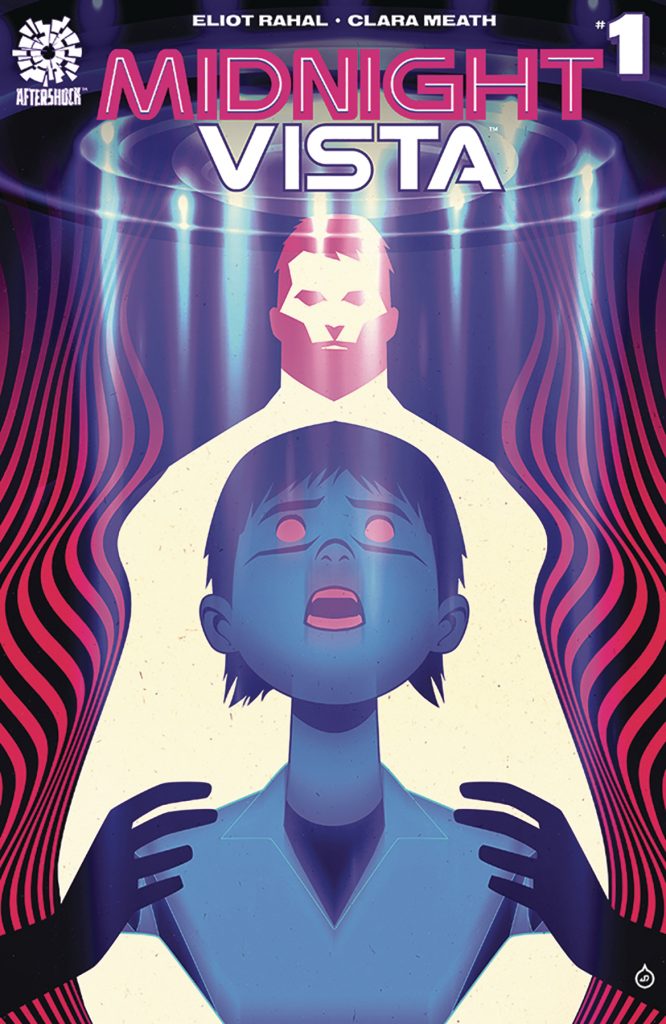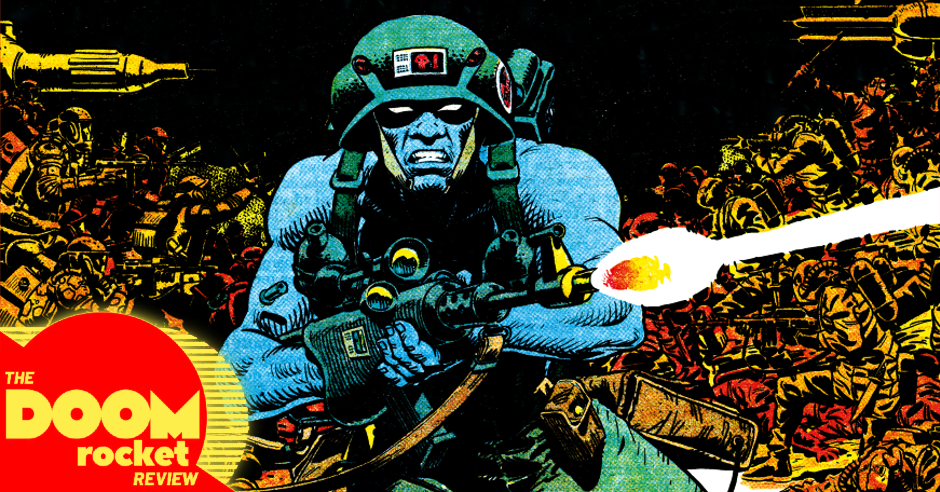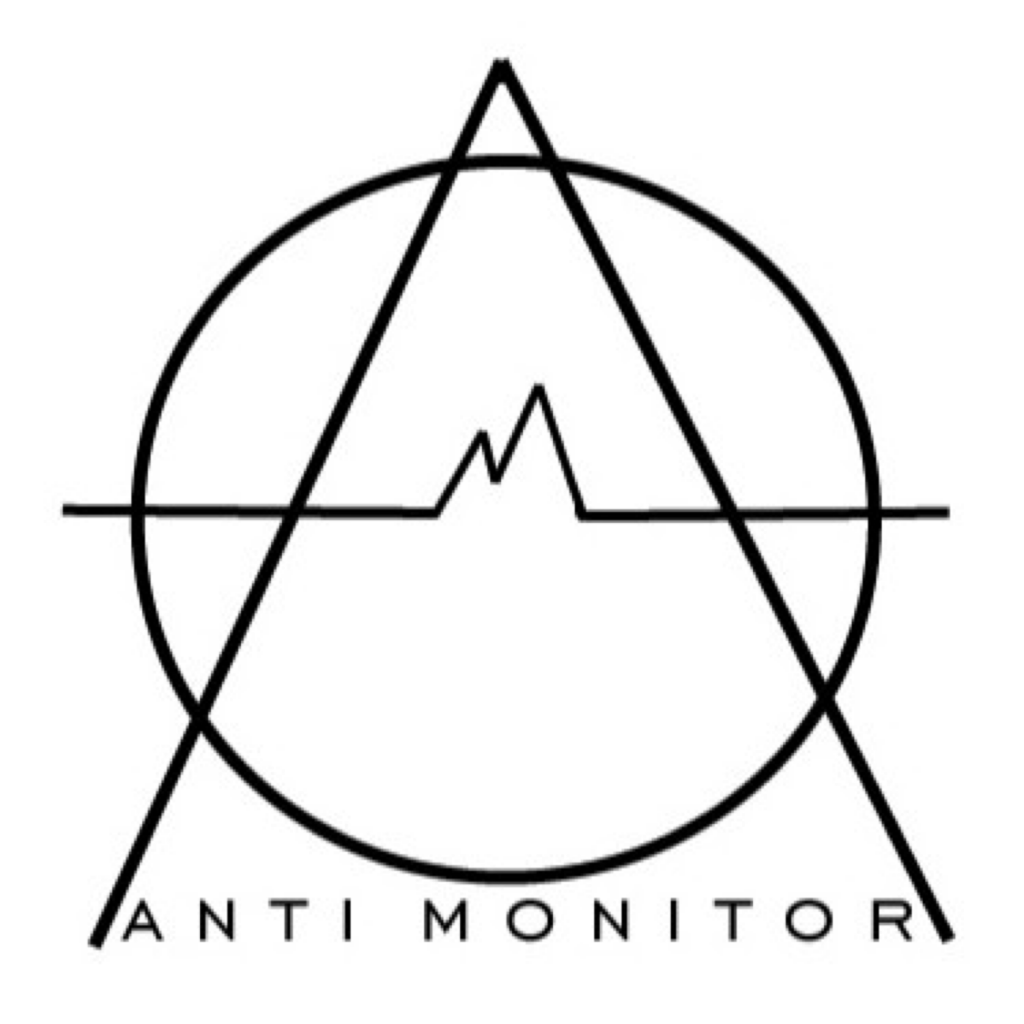Are you looking forward to a new comic book but it’s impossible for you to wait for its release before you know what we thought about it? That’s why there’s DoomRocket’s Advanced Reviews—now we assess books you can’t even buy yet. This week: ‘Midnight Vista’ #1, out September 4, from AfterShock Comics.

THIS ADVANCE REVIEW OF ‘MIDNIGHT VISTA’ #1 CONTAINS MINOR SPOILERS.
by Brendan Hodgdon. It often takes a great deal of bravery to create art. It can require vulnerability, a willingness to address difficult truths not just about the world, but about yourself. And the worst part is that even if you are able to overcome your own uncertainties, you then put your art (and by extension, yourself) up for judgment, interrogation, and possible ridicule by your audience. This is what writer Eliot Rahal is facing in using his own possible close encounter as the inspiration for the new AfterShock series Midnight Vista. The only thing more impressive than the bravery needed to tell the story in the first place is the skill with which Rahal, Clara Meath, Mark Englert and Taylor Esposito have pulled it off.
The first issue follows Oliver Flores through his abduction in 2002 to his sudden reappearance in the present day. Rahal’s script begins with classic Spielbergian intimacy, as our extended glimpse of Oliver’s childhood is raw and tangible in every detail. The different snippets of television, from Two Towers ads to Heaven’s Gate news to Day the Earth Stood Still dialogue, all feel specific, and the domestic drama surrounding Oliver also feels real and relatable in its plainspoken delivery. Even before we get to Oliver’s disappearance, there is already a sense of sadness surrounding him, which in turn makes his abduction even more painful to witness.
The earnest humanity of Rahal’s script also continues into the present-day segment, and the fallout of grown-up Oliver’s reappearance is filled with just as much impactful detail work as the opening. Things like Oliver immediately asking for ice cream (that he never got to finish before the abduction) or the glimpse of his estranged father listening and re-listening to the voicemail letting him know Oliver is alive are affecting in their simplicity. Throughout the story, Rahal maintains a firm grasp on the hearts of his characters, just as he did with Hot Lunch Special last year.
It’s in the depiction of the abduction itself that the creative team really brings everything together. Rahal mostly uses classic abduction tropes here, though that familiarity is bolstered by the realness of the preceding slice-of-life scenes. Meath’s layouts and pacing are on point, as she uses each individual aspect of the scene—the street lamp, the car, the darkened neighborhood—to ratchet up the tension and enhance the spooky atmosphere. Englert’s colors contrast the darkness of the setting with sharp, stark primary colors for the lamp light. And then Esposito’s letters come in to link every panel with the shrieking of the radio, rendered in such distinctive fashion that you can almost feel the static in your teeth. The whole sequence shatters the relatable world that the opening scenes built and throws us headlong into the meat of the story.
And then at the center of the issue itself, with the book’s only two-page splash, Rahal, Meath, Englert and Esposito highlight the pain and dread at the heart of this story. The splash gives us a glimpse of Oliver’s abduction, captured in big, spare-no-gory-detail images completely drenched in shades of red and punctuated with the aliens’ ghostly speech bubbles. It is the one moment of the book that is so viscerally, bluntly nightmarish, and it both validates the dread of the first half of the book and leaves a lingering pang of sympathy through the rest of the issue. In this, you can feel Rahal’s deepest fears about his experience, brought to vivid life by his collaborators.
With Midnight Vista, we have a comic wherein speculative fiction is being used to speculate about one of the authors himself, to acknowledge and grapple with the incident that for a long time was “the most important thing that ever happened” to him. In doing so, Eliot Rahal takes these difficult and frightening possibilities and he shares them with both his collaborators and their readers with no small amount of bravery. And Clara Meath, Mark Englert and Taylor Esposito have taken that vulnerability and bolstered it with great compassion. The end result is thrilling and heartfelt.
AfterShock Comics/$3.99
Written by Eliot Rahal.
Art by Clara Meath.
Colors by Mark Englert.
Letters by Taylor Esposito.
8.5 out of 10
‘Midnight Vista’ #1 hits stores September 4.
Check out this unlettered 4-page preview of ‘Midnight Vista’ #1, including a variant cover by Rahzzah, courtesy of AfterShock Comics!



















